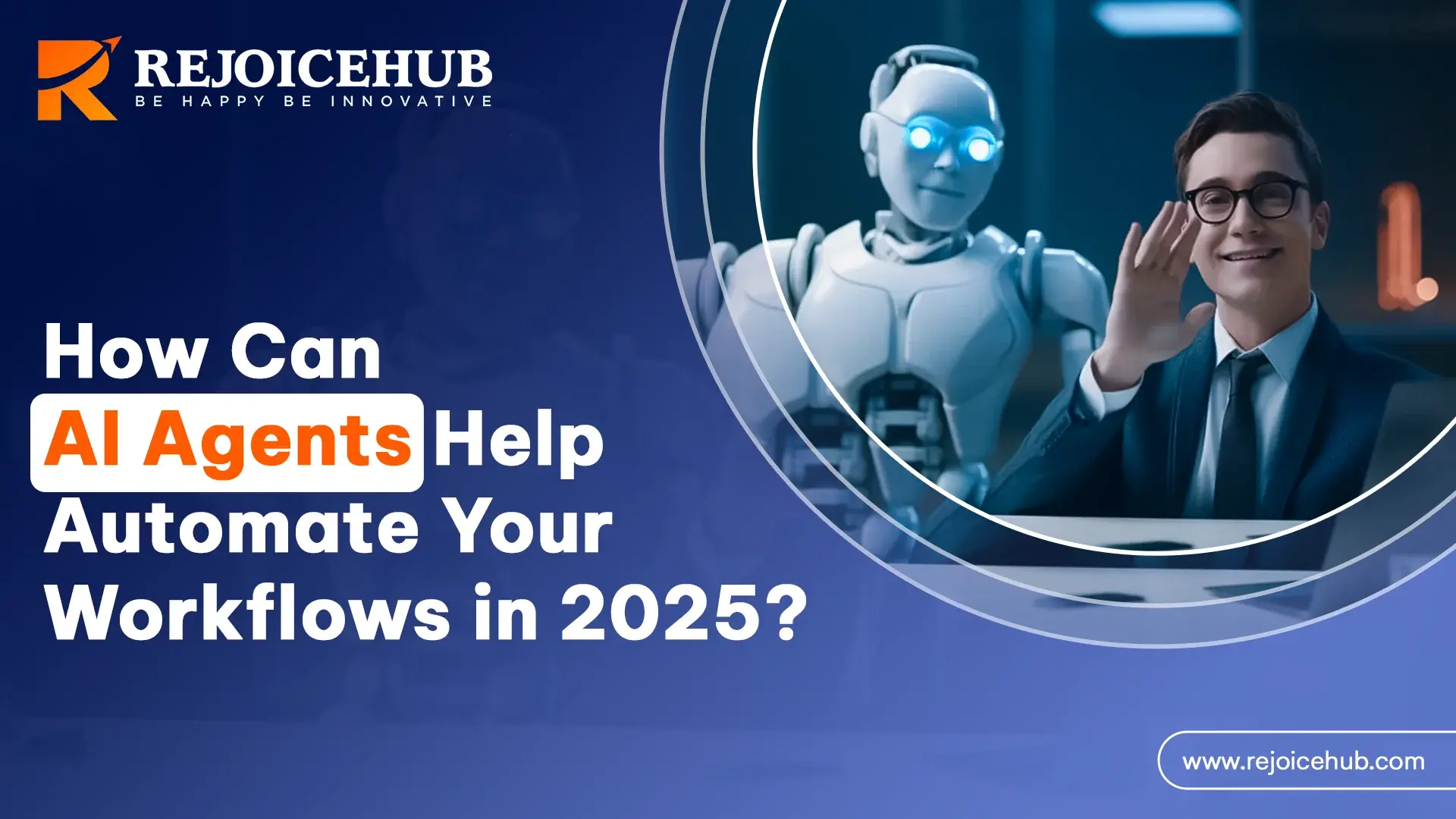
In today's fast-paced work environment, professionals are drowning in tasks. The modern workplace demands more every day, and there simply aren't enough hours. Enter AI agents – digital teammates that might just save one's sanity (and weekends). After extensive testing of numerous AI agents over six months, it's clear that some are game-changers while others are merely glorified chatbots wearing fancy hats. This guide +separates the revolutionary from the mediocre to help professionals make informed decisions.
What is an AI Agent?
An AI agent isn't just another buzzword to ignore. It's software that can perceive its environment, make decisions, and take actions to accomplish specific goals – without requiring micromanagement for every step. Unlike basic AI tools that perform single tasks when prompted, agents work autonomously over time. They represent the difference between having an assistant who needs constant instruction versus one who handles things independently while allowing focus on bigger priorities. The most impressive aspect? Agents learn from experience. The longer they work with someone, the better they become at understanding needs and preferences.
How do AI Agents Work?
Behind the scenes, AI agents use several interconnected systems to deliver their capabilities. Here's a breakdown of the key components without unnecessary technical jargon :
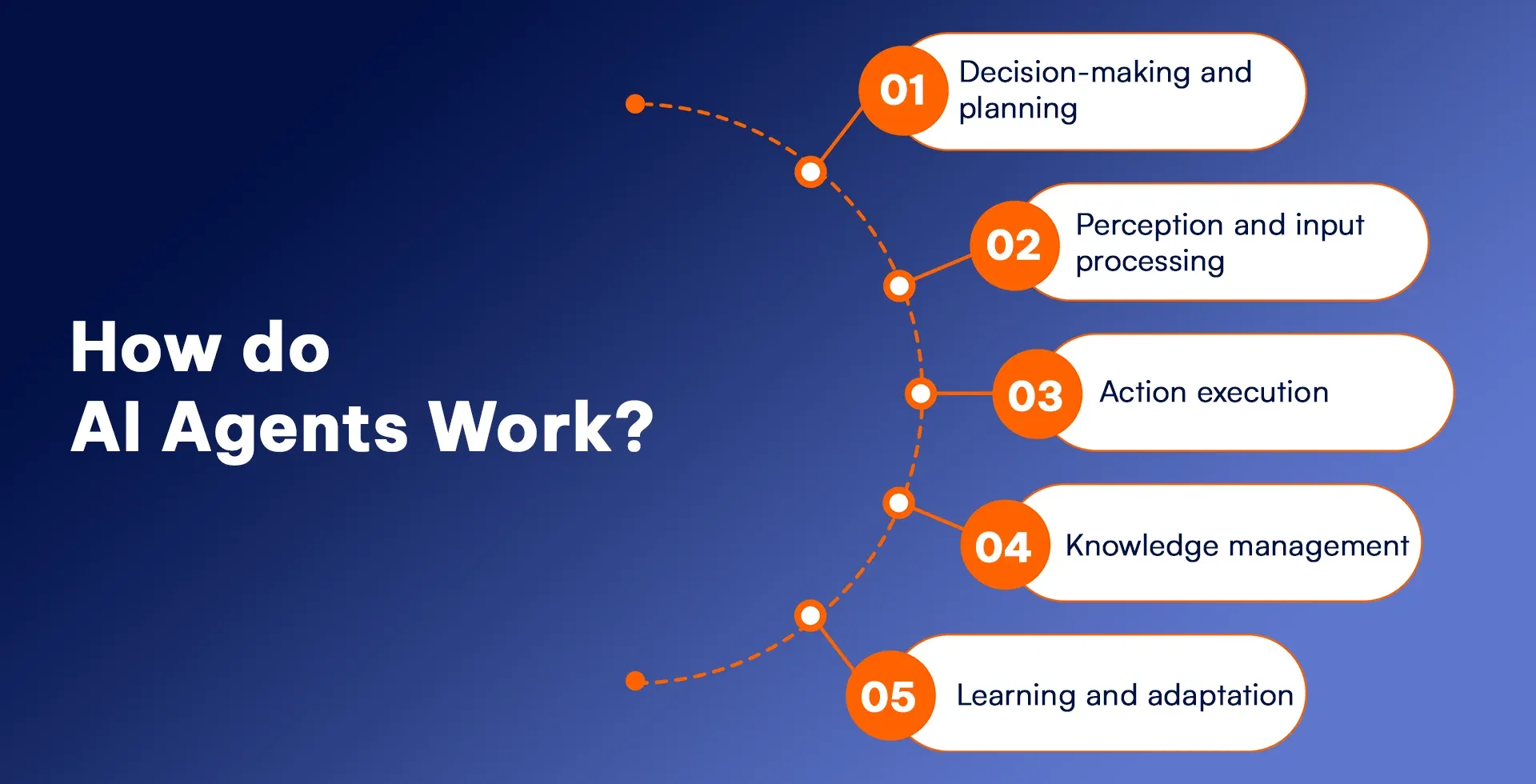
1. Decision-making and Planning
This is the brain of the operation. Agents use complex algorithms to evaluate situations, weigh options, and plot the best path forward. This might involve -
Parsing requests to identify goals
- Breaking complex tasks into manageable steps
- Prioritizing actions based on importance and deadlines
- Adjusting plans when circumstances change The best agents can think several steps ahead, anticipating problems before they arise and planning accordingly.
2. Perception and Input Processing
These are the eyes and ears. Agents need to understand what's happening in their environment to make good decisions. This includes -
- Processing natural language (instructions)
- Analyzing documents, spreadsheets, or databases
- Monitoring relevant metrics or incoming messages
- Understanding context from previous interactions Advanced agents can handle multiple input types simultaneously and extract meaning from unstructured data.
3. Action Execution
These are the hands that do the work. Once an agent knows what to do, it carries out the necessary actions -
- Sending emails or messages
- Updating records in systems
- Generating content or reports
- Scheduling meetings or tasks
- Integrating with other software tools The most powerful agents can navigate between multiple systems seamlessly.
4. Knowledge Management
This functions as the memory bank. Agents store and organize information for future use -
- Logging important conversations
- Keeping track of project status
- Maintaining databases of facts and procedures
- Remembering preferences and past decisions This institutional memory makes agents increasingly valuable over time.
5. Learning and Adaptation
This represents the growth mindset. Great agents improve through -
- Analyzing past successes and failures
- Adjusting strategies based on feedback
- Identifying patterns in workflows
- Adapting to communication styles This continuous improvement cycle means agents become more efficient with every task.
Types of AI Agents
Not all AI agents are created equal. Different types excel at different tasks, so understanding the landscape helps in choosing the right digital ally for specific needs.
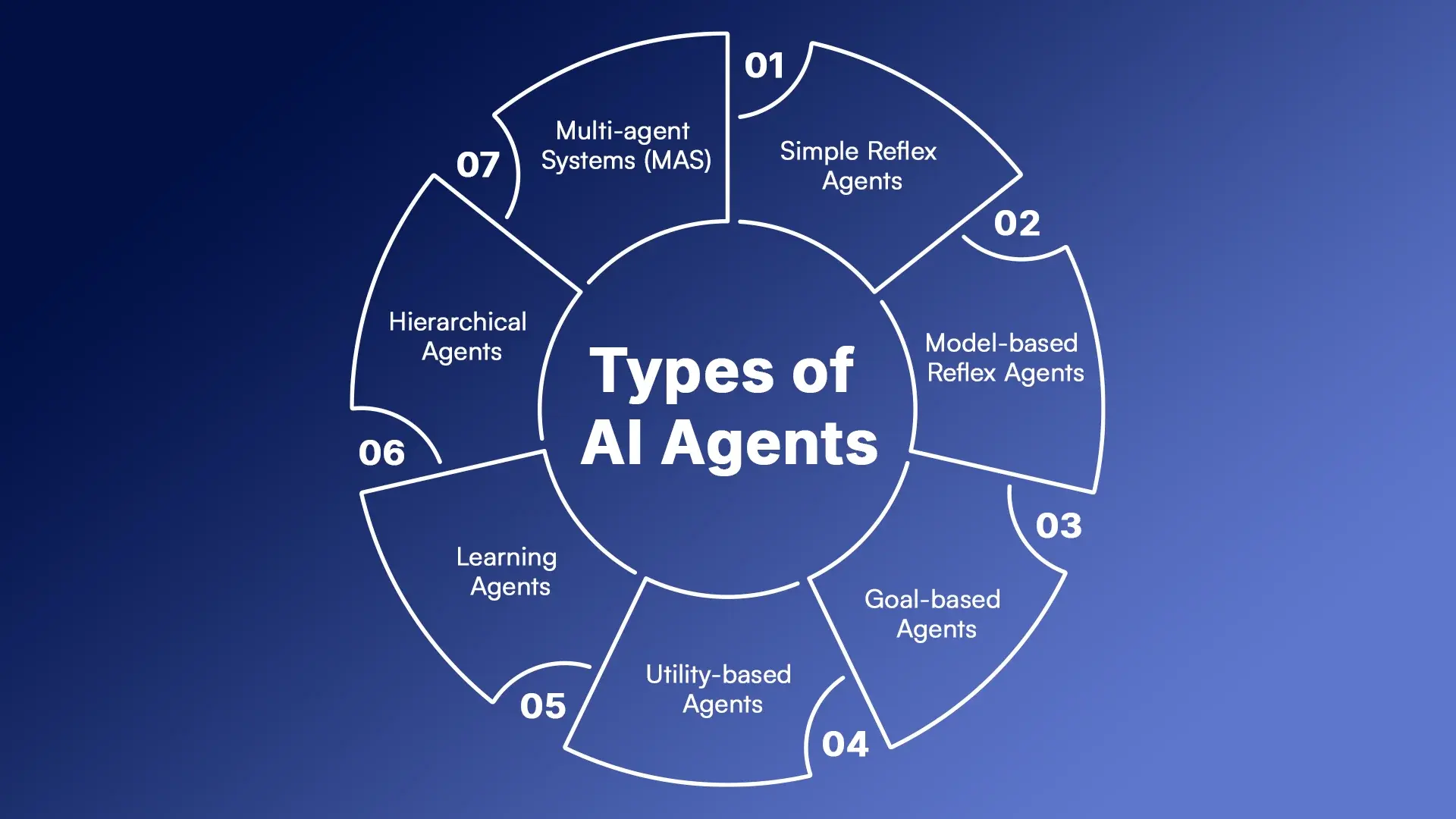
1. Simple Reflex Agents
These are the kindergarteners of the AI world – they follow basic if-then rules. When X happens, do Y. They don't consider history or long-term consequences.
- Best for: Straightforward, repetitive tasks with clear triggers and responses.
- Example use: Automatically categorizing incoming support tickets based on keywords.
2. Model-based Reflex Agents
A step up from simple reflex agents, these maintain an internal model of their world. They can handle situations they haven't explicitly been programmed for by referencing this model.
- Best for: Tasks requiring adaptation to changing conditions within defined parameters.
- Example use: Managing inventory levels across multiple warehouses, adjusting to seasonal demand fluctuations.
3. Goal-based Agents
These agents work backward from a desired outcome, plotting the necessary steps to get there. They're constantly evaluating whether their actions are bringing them closer to the goal.
- Best for: Complex projects with clear success criteria but flexible implementation paths.
- Example use: Optimizing a marketing campaign to reach specific conversion targets.
4. Utility-based Agents
The economists of AI agents, these systems assign value to different outcomes and make decisions to maximize utility. They weigh tradeoffs and can prioritize competing objectives.
- Best for: Scenarios involving multiple factors and competing priorities.
- Example use: Balancing customer satisfaction, cost efficiency, and resource allocation in service delivery.
5. Learning Agents
These agents improve through experience, refining their approach based on successes and failures. They combine the best features of other agent types with adaptive capabilities.
- Best for: Long-term partnerships requiring continuous improvement.
- Example use: Personalizing customer experiences based on interaction history and preference patterns.
6. Hierarchical Agents
These organize subtasks and delegate to specialized sub-agents. Think of them as managers coordinating a team of specialists.
- Best for: Complex workflows requiring different skill sets.
- Example use: Coordinating an entire content marketing operation from research to publication and distribution.
7. Multi-agent Systems (MAS)
Here, multiple agents collaborate (or sometimes compete) to solve problems. They communicate, negotiate, and coordinate their actions.
- Best for: Projects requiring diverse perspectives or distributed processing.
- Example use: Simulating market conditions to optimize pricing strategies across product lines.
Also Read: What Are Agentic AI Workflows? Benefits, Use Case, and More
Best AI Agents to Automate Your Workflows in 2026
After countless hours of testing, here are the standout performers that actually deliver on their promises:
1. AutoGPT
AutoGPT represents one of the most ambitious attempts to create truly autonomous AI. Unlike most agents that require frequent check-ins, AutoGPT can pursue complex objectives with minimal supervision.
Observers have watched it research unfamiliar industries, identify key trends, and draft comprehensive reports – all with just a single prompt to start. The ability to reason through roadblocks instead of getting stuck is what sets it apart.
The learning curve is steeper than some alternatives, but the payoff is worth it. Companies report saving 15-20 hours weekly on research and analysis tasks after proper implementation.
- Strengths: Exceptional autonomy, impressive reasoning capabilities, versatile applications.
- Best for: Complex research projects, content creation pipelines, and market analysis.
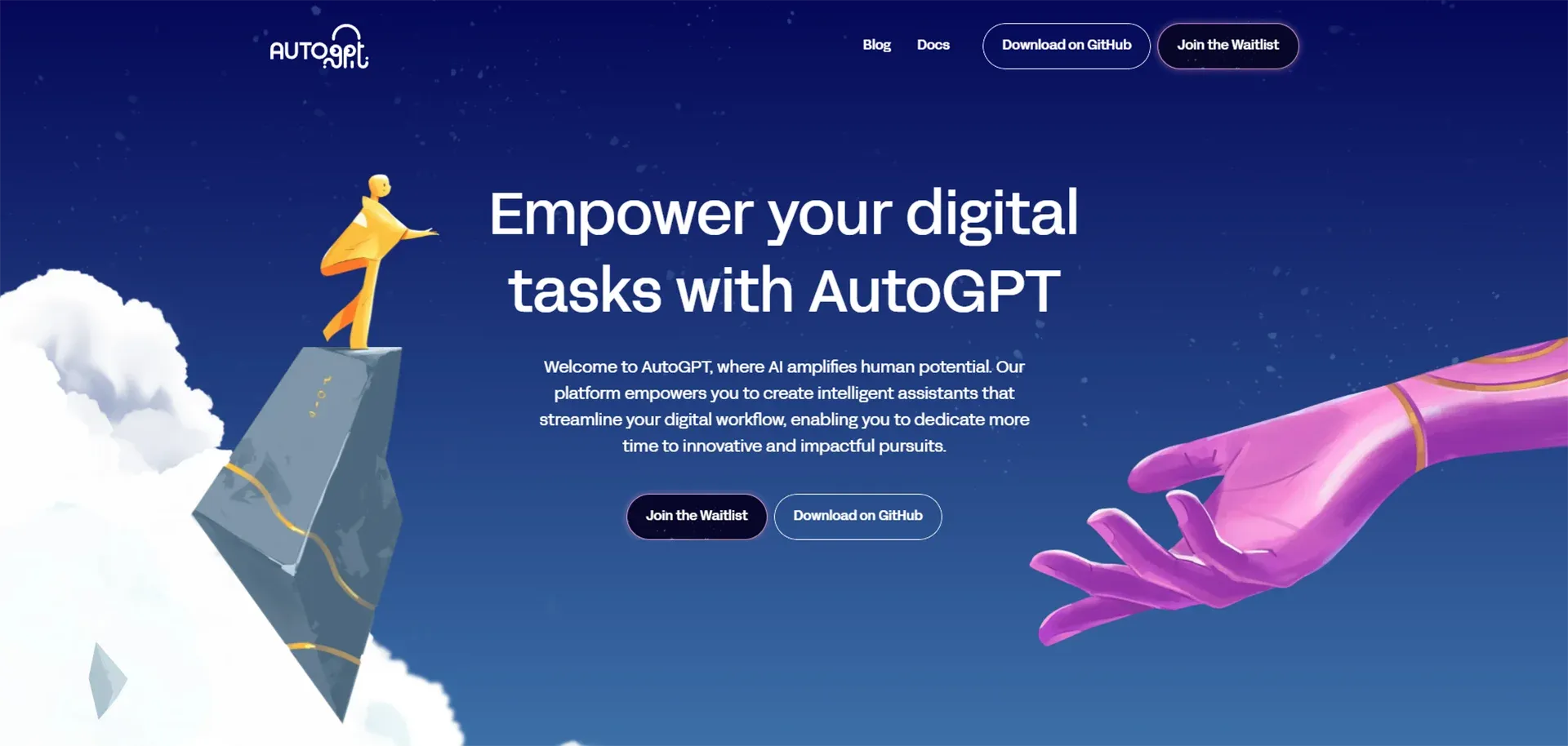
2. Lutra AI
Lutra AI might be the closest thing to a digital operations manager in the current market. Its specialty is connecting disparate systems and orchestrating smooth workflows between them.
What impresses most users is its ability to learn existing processes by observation, then suggest improvements. One manufacturing client reported a 34% reduction in process inefficiencies within two months of deployment.
The visual workflow builder makes it accessible to non-technical users, while developers appreciate the robust API for custom integrations. Recent updates have significantly improved its handling of unstructured data, making it even more versatile.
- Strengths: Unmatched process automation, exceptional system integration, intuitive interface.
- Best for: Operations teams, administrative workflows, system integration challenges.
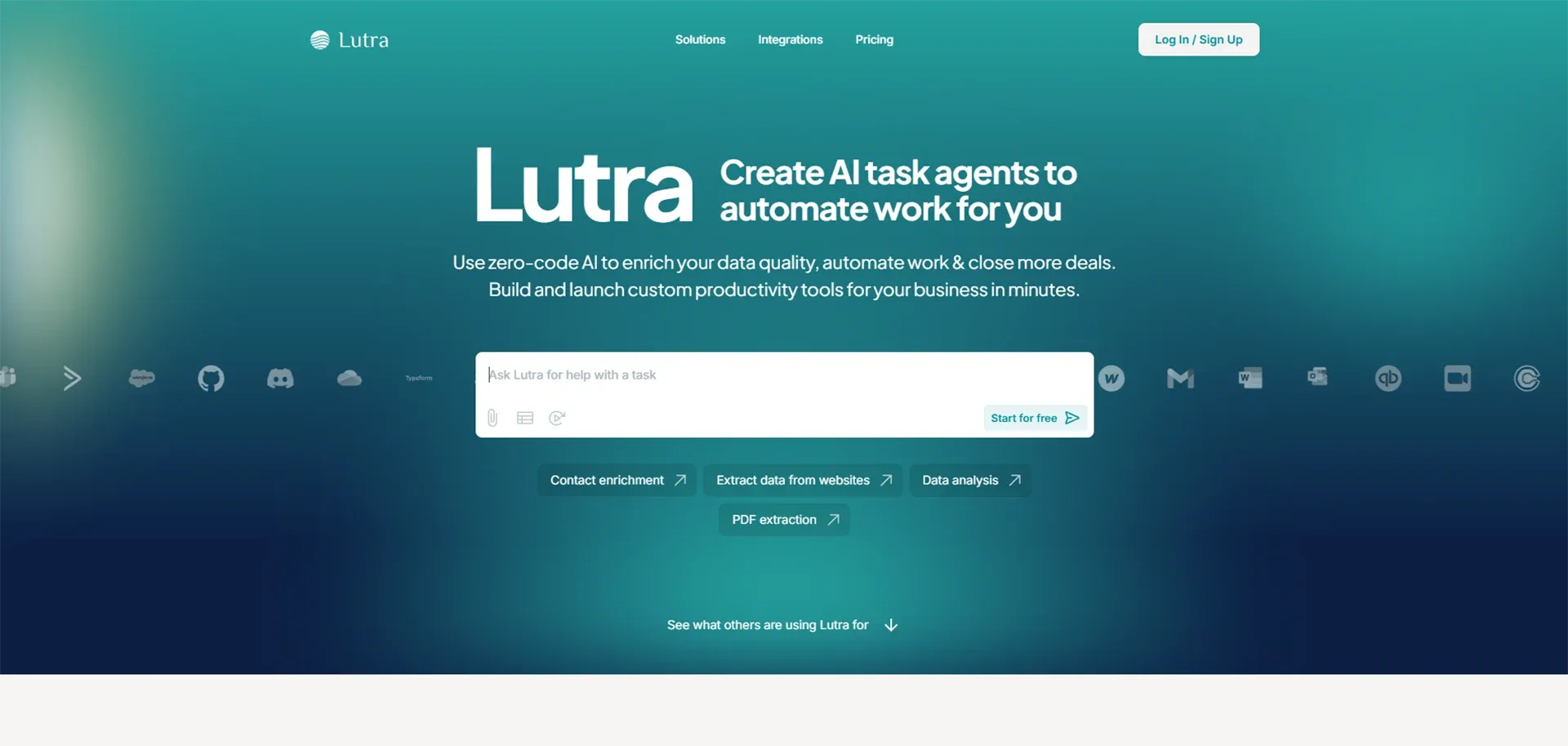
3. AgentGPT
The relatively simple interface belies AgentGPT's serious functionality. It shines in scenarios where users need to quickly deploy capable agents without extensive setup or training.
The templated approach to common workflows means functional automation can be running within hours, not days or weeks. While it doesn't offer the deep customization of some competitors, its plug-and-play nature makes it perfect for teams looking to quickly boost productivity.
The vibrant user community provides excellent resources for optimizing performance, with new use cases being shared daily.
- Strengths: Accessibility, rapid deployment, strong community support.
- Best for: Small businesses, solopreneurs, and teams new to AI implementation.
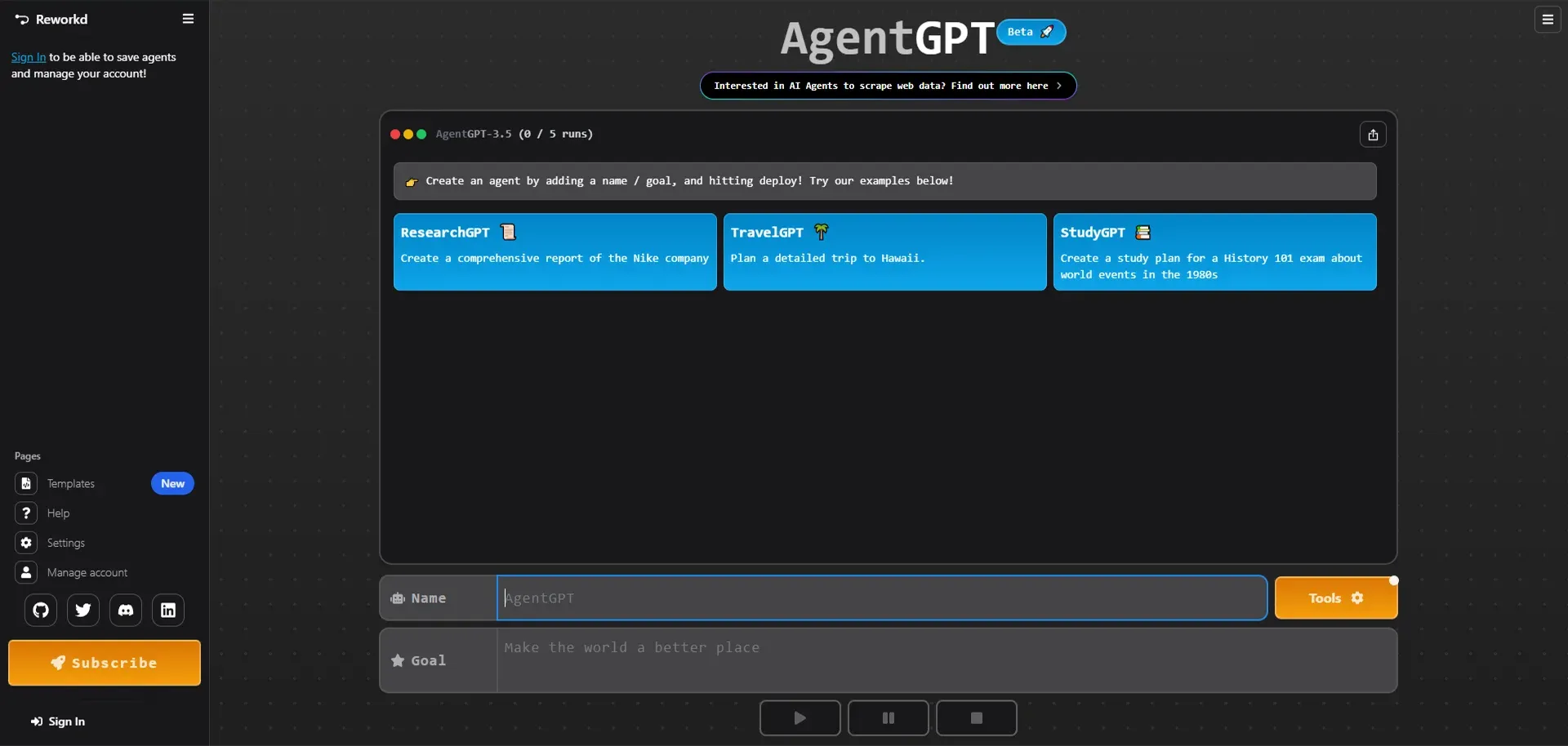
4. AIAgent.app
For teams with revenue growth as a primary goal, AIAgent.app deserves special attention. This platform focuses laser-like on optimizing customer-facing operations, from lead generation to retention.
The standout feature is its ability to analyze customer communications, identify patterns in successful conversions, and then apply those insights to future interactions. Several users report 20%+ increases in conversion rates within the first quarter of implementation.
The analytics dashboard is exceptional, providing clear visibility into exactly how the agents are impacting the bottom line. This makes it easier to justify the investment to stakeholders and continuously refine approaches.
- Strengths: Specialization in sales and marketing, powerful analytics, impressive ROI tracking.
- Best for: Sales teams, marketing departments, customer success operations.
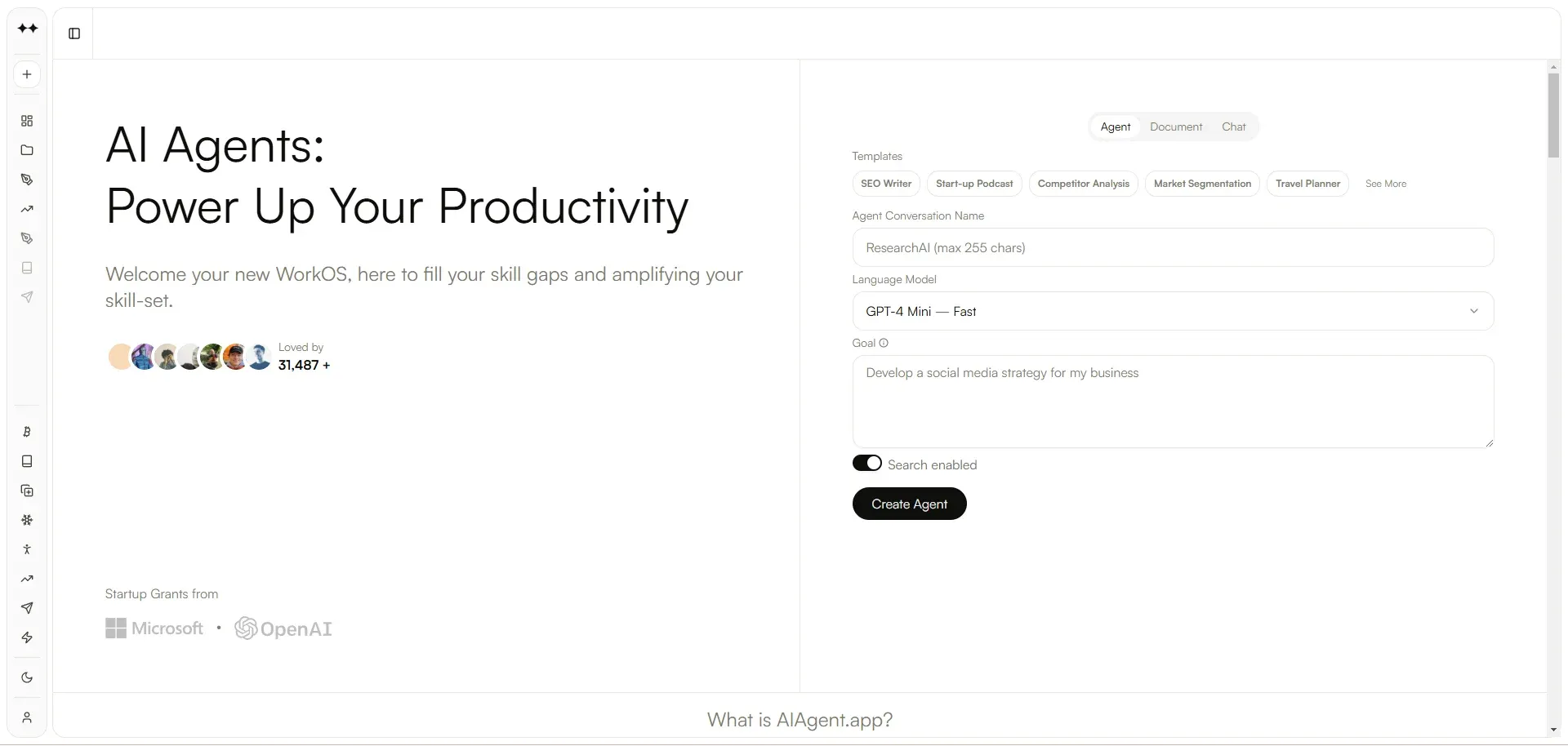
5. AgentForce
- Strengths: Enterprise-grade security, unmatched scalability, comprehensive training suite.
- Best for: Large organizations, regulated industries, complex operational environments.
AgentForce addresses the biggest concern enterprises have about AI agents - governance. The platform was built from the ground up with security, compliance, and scalability as primary considerations.
The agent monitoring system provides unprecedented visibility into decision-making processes, making it ideal for industries with strict compliance requirements. The human-in-the-loop options allow for appropriate oversight without sacrificing efficiency.
What makes AgentForce particularly valuable is its ability to maintain performance at scale. While many platforms bog down when handling enterprise-level data volumes, AgentForce maintains responsiveness even in the most demanding environments.
- Strengths: Enterprise-grade security, unmatched scalability, comprehensive training suite.
- Best for: Large organizations, regulated industries, complex operational environments.
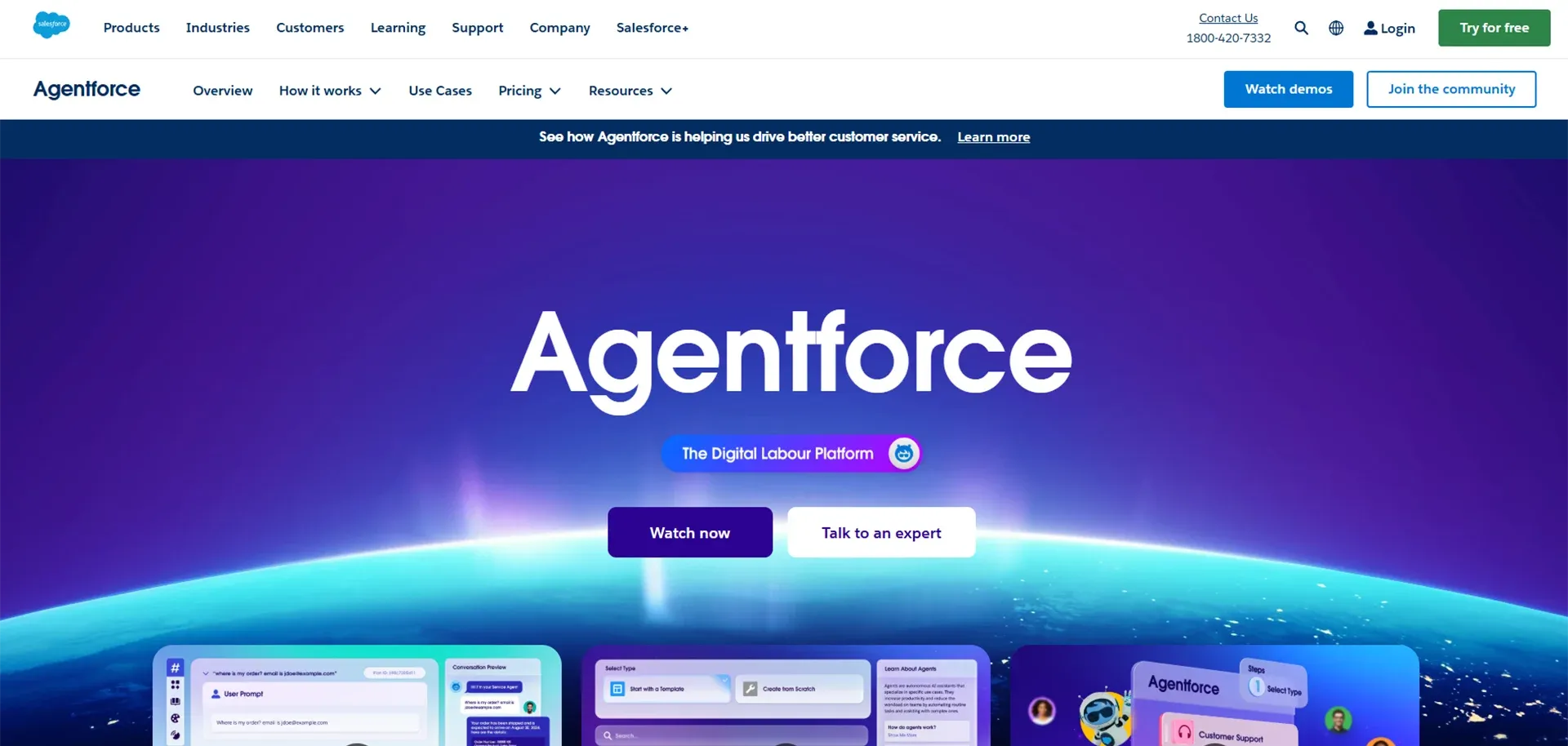
How AI Agents Can Transform Your Business
The impact of well-implemented AI agents extends far beyond simple time savings. Here's how they're transforming operations across industries
1. Eliminating Operational Bottlenecks
Every organization has workflow chokepoints – typically routine but essential tasks that create backlogs. AI agents excel at clearing these bottlenecks, maintaining steady progress even during peak demand periods.
A regional healthcare provider deployed agents to handle insurance verification processes, reducing average wait times by 64% and freeing staff to focus on patient care.
2. Enhancing Decision Quality
Humans make worse decisions when overwhelmed, tired, or rushed. Agents don't suffer these limitations, maintaining consistent analysis quality regardless of workload or time of day.
Investment teams using agent-augmented analysis report higher confidence in their decisions and more consistent performance across market conditions.
3. Accelerating Innovation Cycles
By handling routine aspects of product development and testing, agents compress development timelines and create space for creative exploration.
A software development team reported cutting their release cycle from six weeks to four after implementing agents for code review, testing, and documentation tasks.
4. Improving Customer Experiences
Agents can provide personalized, responsive service at scale, often exceeding what human-only teams can deliver. An e-commerce retailer saw customer satisfaction scores increase by 22% after deploying agents that provided proactive order updates and personalized recommendations.
5. Reducing Costs While Scaling Operations
The economics of agent-augmented workflows can be transformative, especially for growth-stage companies. A logistics company managed to double shipment volume while increasing staff by only 15%, with agents handling coordination and optimization functions.
How to Successfully Implement AI Agents
Despite their potential, AI agents aren't plug-and-play magic. Here's how to maximize chances of success:
1. Start With Clear Objectives
Define specific problems to solve before selecting agents. "Improve efficiency" is too vague; "Reduce contract review time by 30%" provides a measurable target.
2. Choose the Right Agent Type
Match agent capabilities to specific needs. Don't use a complex learning agent when a simple reflex agent would suffice – or vice versa.
3. Invest in Proper Training
Both agents and teams need training. Allocate sufficient resources for initial setup and ongoing refinement.
4. Plan for Human-Agent Collaboration
The most successful implementations focus on augmenting human capabilities rather than complete replacement. Design workflows where each party handles what they do best.
5. Measure What Matters
Establish baseline metrics before deployment and track key performance indicators consistently. Be prepared to adjust approaches based on real-world results.
The Future of AI Agents
The surface of what's possible is just being scratched. Here's what to watch for:
- Increased Autonomy: Agents will handle increasingly complex decision chains with less human oversight.
- Improved Collaboration: Agent-to-agent communication protocols will enable more sophisticated task distribution.
- Enhanced Transparency: New tools will make agent reasoning more interpretable, building trust and improving oversight.
- Specialized Vertical Solutions: More agents designed for specific industries with built-in domain knowledge will emerge.
- Democratized Access: User-friendly interfaces will make agent creation accessible to non-technical users.
How Our AI Agent System Can Help Your Business Growth
Businesses across industries, sizes, and specific challenges can benefit from customizable agent frameworks that adapt to unique needs. Organizations have achieved:
- 30-40% reduction in routine administrative tasks
- 25%+ improvement in response times for customer inquiries
- Significant cost savings through operational efficiency
- Enhanced employee satisfaction by eliminating mind-numbing work
Implementation specialists work closely with teams to identify the highest-impact opportunities, ensuring concrete results within weeks, not months.
Organizations ready to explore how AI agents can transform operations can request a no-obligation workflow assessment to see what's possible.
Conclusion
AI agents represent a fundamental shift in how work gets done. They're not just automating tasks; they're transforming how organizations allocate human attention and creativity.
The winners in this new landscape won't be those who simply deploy the most agents, but those who thoughtfully integrate them into workflows that maximize unique human capabilities while leveraging machine strengths.
The question isn't whether AI agents will transform industries they will. The question is whether organizations will lead that transformation or struggle to catch up.
Partner with Rejoicehub for AI agent development services and unlock smarter, scalable solutions to drive your business growth.
Frequently Asked Questions
1. How long does it typically take to implement an AI agent solution?
Simple implementations can be operational within days, while more complex enterprise integrations typically require 4-8 weeks for proper setup and training.
2. Do AI agents require constant supervision?
It depends on the complexity of tasks. Most implementations include confidence thresholds that determine when human review is required.
3. What about data security concerns?
Leading platforms offer enterprise-grade security, including data encryption, role-based access controls, and compliance with major regulatory frameworks.
4. Can AI agents integrate with existing software?
Yes, most solutions offer API connectivity with popular business tools. The depth of integration varies by platform.
5. How do we measure ROI for AI agent implementation?
Effective measurement combines time savings, error reduction, throughput improvements, and qualitative factors like team satisfaction and customer experience.
6. What happens if an agent encounters a situation it can't handle?
Well-designed systems include escalation protocols that route complex cases to appropriate human specialists.
